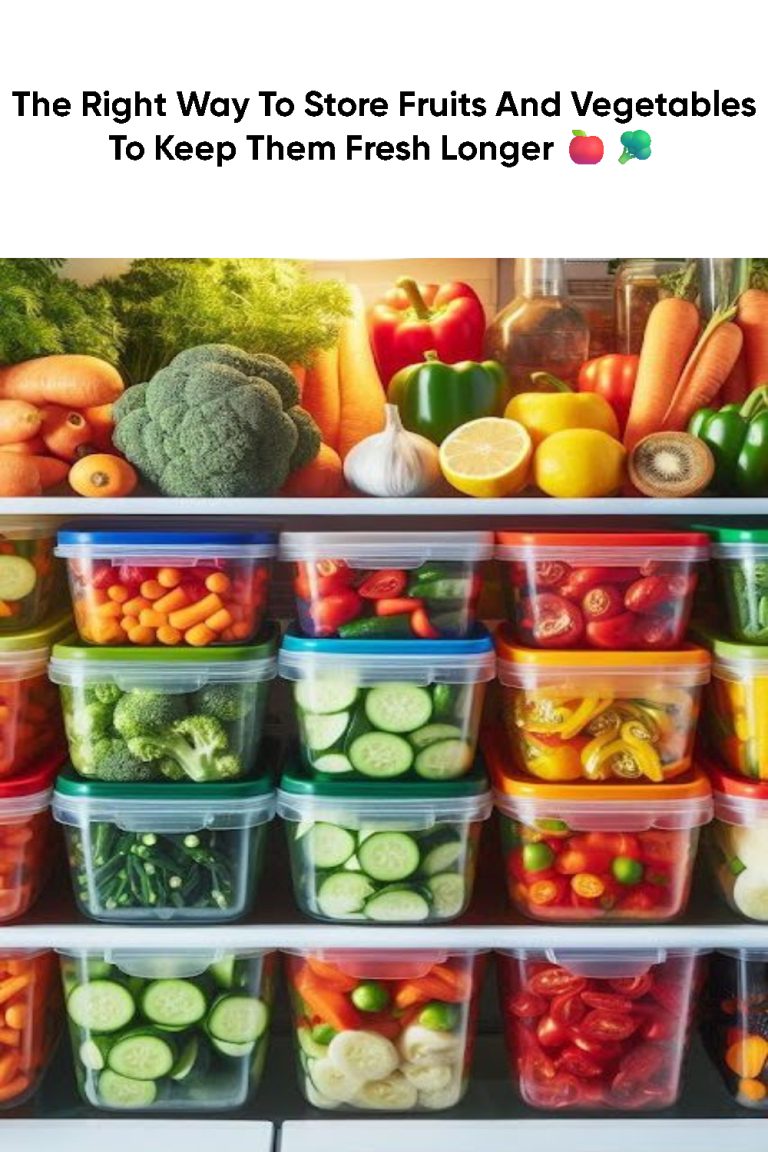ADVERTISEMENT
-
Glass Jars for Chopped Veggies
-
Store cut carrots, cucumbers, and celery sticks in water-filled glass jars for easy snacking.
-
-
Reusable Silicone Bags
-
Replace single-use plastic with reusable silicone bags for cut fruit and herbs.
-
-
Freezing for Future Use
-
Chop and freeze bananas, spinach, or berries for smoothies.
-
Blanch vegetables like broccoli or green beans before freezing to preserve nutrients.
-
-
Vinegar Rinse for Berries
-
Soak berries in a mix of 1 part vinegar to 3 parts water, then dry thoroughly. This kills mold spores and extends shelf life.
-
Common Mistakes to Avoid
-
Overfilling the fridge: Proper airflow is essential to keep humidity balanced.
-
Storing produce wet: Excess water encourages mold and bacteria. Always dry thoroughly.
-
Plastic bags without ventilation: They trap moisture and cause wilting.
-
Mixing fruits and vegetables: As explained earlier, ethylene gas can ruin your produce if stored incorrectly.
Final Thoughts
With a little knowledge and organization, you can double the lifespan of your fruits and vegetables. Think of your fridge as a garden: each item has its place, and when stored correctly, it thrives.
✅ Key takeaway: Separate ethylene producers from sensitive veggies, use proper containers, and know what goes in the fridge versus what stays out.
By following these tips, you’ll not only enjoy fresher, tastier meals but also save money and reduce waste.
